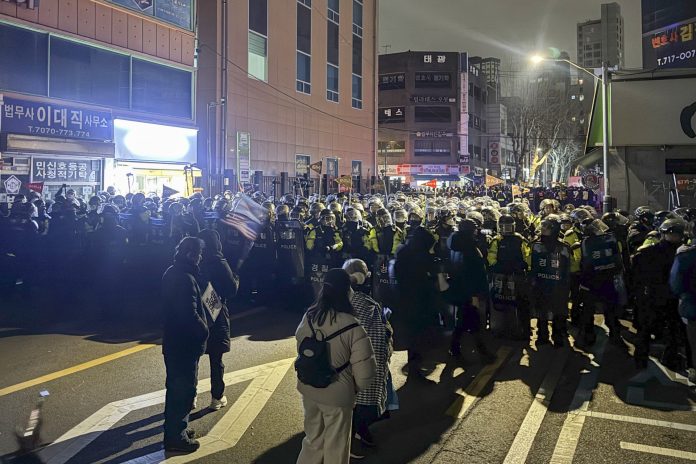A Consolata missionary who has lived in South Korea for 30 years has expressed that the country is at a crossroads, with its people determined to protect democracy amid political turmoil.
“There is a general unrest among the population: after the impeachment and arrest of the President, there is a feeling of uncertainty and waiting for a solution to a matter that could take several more months,” said Father Diego Cazzolato, speaking to Vatican’s Fides News Agency.
“But one thing is clear: Koreans want to protect the achievements of democracy at all costs,” the priest added.
Based in Daejeon, Father Cazzolato described how the political crisis has reignited painful memories of South Korea’s authoritarian past.
“Immediately after the declaration of martial law, a general mobilization took place in all Korean cities,” he said. “People, especially adults and the elderly, were immediately reminded of the painful events of 1980.”
The priest reflected on the grim history of the Gwangju Massacre, a pivotal moment when military forces brutally suppressed demonstrations against the Chun Doo-hwan dictatorship, which had come to power following a coup in 1979.
In the spring of 1980, calls for democratic reforms intensified, led by students and professors, prompting the government to impose martial law across the nation on May 17.
The next day, the city of Gwangju became the epicenter of a violent crackdown, where a popular uprising against the regime was met with deadly force, resulting in hundreds of casualties.
The events of that time, deeply etched in the nation’s history, continue to resonate with the population, who are determined to prevent a repeat of such tragedies in the face of the current crisis.
The political crisis escalated on January 19 when supporters of President Yoon Suk Yeol, detained since January 15, stormed the Seoul District Court.
The raid, which left 83 injured and caused damages estimated at 600-700 million won (about $500,000), has been described as “one of the biggest challenges to the judiciary in recent decades.”
“Acts of terror targeting individual judges or court proceedings are not only a complete rejection of the rule of law, but also an affront to all constitutional institutions,” said Cheon Dae-yeop, head of the Supreme Court’s administrative office.
An emergency meeting of judges, led by Chief Justice Cho Hee-dae, focused on measures to prevent similar incidents as investigations are underway to hold the perpetrators accountable.
The Constitutional Court is expected to rule by June 11 on whether to confirm or annul the impeachment proceedings against President Yoon. Until then, South Korea faces a tense wait, as fears of further unrest remain high.
“This is a pivotal moment for South Korea’s democracy,” Father Cazzolato emphasized.









